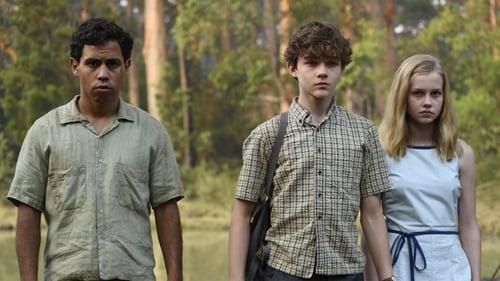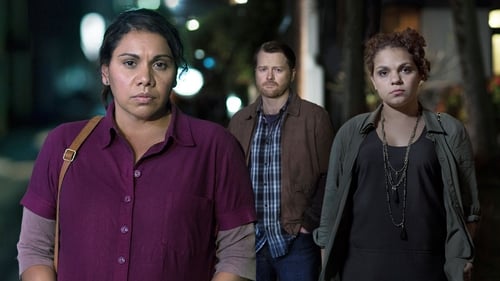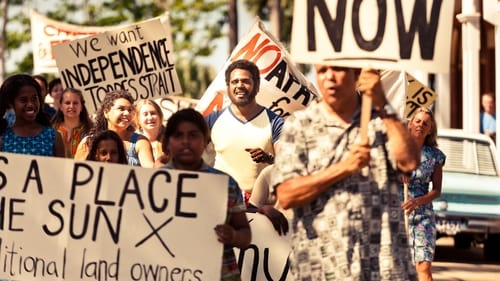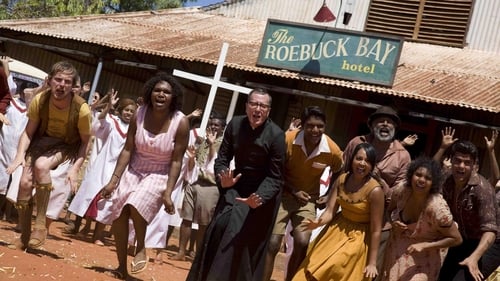Rachel Perkins
Рождение : 1970-01-01, Canberra, Australia
История
Rachel Perkins is an Australian film and television director, producer, and screenwriter. Her Australian Aboriginal heritage (Arrernte/Kalkadoon) has informed her entire filmmaking career. She founded Australia's premier Indigenous production company Blackfella Films in 1992, and has contributed extensively to the development of Indigenous filmmakers in Australia and, more broadly, to the Australian film and television industry. She is known for her films Radiance (1998), One Night the Moon (2001), Bran Nue Dae (2010), and Jasper Jones (2017).

Director
В фильме рассказывается история Чарльза Бактина, четырнадцатилетнего мальчика, который очень любит читать. Однажды ночью к нему за помощью обращается местный изгой-мулат, Джаспер Джонс, нашедший тело своей девушки, и жизнь Чарли меняется навсегда. Втайне от взрослых он пытается найти настоящего убийцу, попутно борясь с проявлениями расизма, переживая разлад в семье и первую любовь.

Director
Two young women are raped on their way home. The story follows the lives of both women and the different ways they deal with the crime.

Director
Marlene Cummins breaks a forty-year silence to tell the story of her abuse in the Australian Black protest movement, to overcome her demons of today.

Director
Mabo tells the story of one of Australia's national heroes - Eddie Koiki Mabo, the Torres Strait Islander who left school at age 15, yet spearheaded the High Court challenge that overthrew the fiction of terra nullius.

Writer
In the Summer of 1965 a young man is filled with the life of the idyllic old pearling port Broome - fishing, hanging out with his mates and his girl. However his mother returns him to the religious mission for further schooling. After being punished for an act of youthful rebellion, he runs away from the mission on a journey that ultimately leads him back home.

Director
In the Summer of 1965 a young man is filled with the life of the idyllic old pearling port Broome - fishing, hanging out with his mates and his girl. However his mother returns him to the religious mission for further schooling. After being punished for an act of youthful rebellion, he runs away from the mission on a journey that ultimately leads him back home.

Producer
A white collector of Aboriginal art gets a shock when the Mimi sculpture she purchased comes to life.

Director
Based on the true story of a young girl who went missing in the Australian outback in 1932.

Director
After the death of their mother, three estranged sisters return to their childhood home.

Line Producer
Paddy finds there are two separate laws, the white and the black.

Director
Outspoken leader Charles Perkins grew up on a reserve, separated from his relatives. He was shunned by white Australian society and his early experiences of racism spurred him to go on to university and to challenge racial inequality. One of the first Aboriginal people to graduate from university, he soon came to the forefront of direct action against oppression and injustice, leading the 1965 freedom rides that challenged apartheid practices in northern NSW. Freedom Ride takes Charles Perkins back to Moree and Walgett and uses newsreel footage and dramatic reconstructions to retrace his story. The program was directed and produced by his daughter Rachel Perkins; his son Adam Perkins plays Charles as a young man.

Producer
Outspoken leader Charles Perkins grew up on a reserve, separated from his relatives. He was shunned by white Australian society and his early experiences of racism spurred him to go on to university and to challenge racial inequality. One of the first Aboriginal people to graduate from university, he soon came to the forefront of direct action against oppression and injustice, leading the 1965 freedom rides that challenged apartheid practices in northern NSW. Freedom Ride takes Charles Perkins back to Moree and Walgett and uses newsreel footage and dramatic reconstructions to retrace his story. The program was directed and produced by his daughter Rachel Perkins; his son Adam Perkins plays Charles as a young man.

Producer
Arrernte elder Rupert Max Stuart tells his side of the story about how he was sentenced to death for a crime he says he didn’t commit. For 30 years, Arrernte man Rupert Max Stuart has maintained his innocence of the rape and murder of a young white girl. His story became the basis for the movie Black and White in 2002. In Broken English, we hear from Max and those personally involved in the case. Max Stuart claims he fell prey to prejudices in the white justice system and alleges he was beaten and verballed by police. He spent 14 years in prison and faced the gallows nine times for the crime he says he didn't commit. This film, which combines documentary and drama, recreates some of the events of his trial, appeals and subsequent Royal Commission. It features Hugo Weaving, Noah Taylor and Tony Barry, with Lawrence Turner playing Max Stuart.

Producer
Law man Darby Jampinjimpa Ross and other Warlpiri elders introduce us to their community's fire ceremony. Made with the close co-operation of the outback Warlpiri community of Yuendumu, the film follows the staging of the ceremony, involving hundreds of people, over several weeks - part of the process of retaining traditional law and culture within the community. Anthropologists describe the ceremony as a means of resolving personal conflicts in society; the elders speak of paying tribute to their ancestors.

Producer
Kev Carmody is a prolific songwriter and musician with a great sense of humour. He has performed with Paul Kelly and Billy Bragg, both of whom appear in this film. When Kev released his first album, Pillars of Society, in 1989, music magazine Rolling Stone described it as "the best album ever released by an Aborigine and arguably the best protest album ever made in Australia". Kev was propelled onto the national stage as a voice of protest for black Australia. This film looks at Kev up close - cattle mustering in southern Queensland, making music in suburban Sydney and playing Long Bay Jail.





